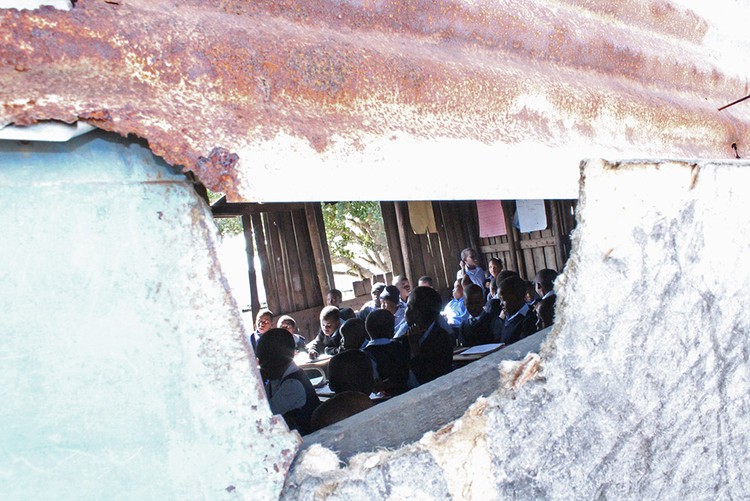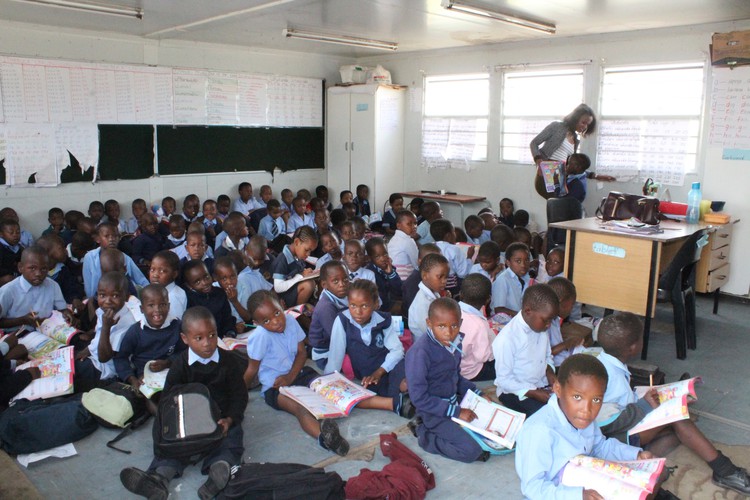
A hole in a classroom wall at Sunshine Primary School in Sodwana Bay. Photo: Nomfundo Xolo
4 August 2017
Teachers at Sunshine Primary School in Sodwana Bay, in northern KwaZulu-Natal, say they are understaffed, have insufficient teaching materials and are forced to work in classrooms made of wood and zinc sheets. There are only five prefabricated classrooms at the school.
They want the school to be built in accordance with the Department of Education’s Norms and Standards. The school has 465 learners and only 10 teachers. It has four working toilets.
A teacher, who asked to remain anonymous, said that Sunshine started as a crèche. It was only registered as a public school in 2012 after an international organisation donated the prefabricated classrooms to the school, she said.
“We were approached by a Canadian programme called the African Pre-Schools Society who donated the first three [prefabricated] classrooms to the school. Two more classes were provided by the Department of Education. We were forgotten about soon after,” she said. “The number of learners grew each year, causing overcrowding and jeopardising the health and safety of the children. We have a handful of resources and facilities available.”
Another teacher said, “We have no basic teaching material such as charts and chalkboards. We also don’t have safety-approved classes or sufficient sanitation. You cannot tell me that any parent is proud to take their children to a school [made of] shacks with no furniture. It’s not nice to be a teacher at a school like this.”
She said that when it rains, teachers and learners have to mop the flooded classrooms before teaching can resume. “We have to cover gaps in the walls with blankets to prevent rain and wind from entering. The children have gotten used to it now. They even pin up their own jerseys,” she said pointing to a row of small jerseys hanging on a washing line nearby.
There are 76 Grade R learners using one of the prefabricated classes and 104 Grade 1 learners in another. Both of the classes have no desks or chairs. The Grades 5 and 6 classes, which consists of 45 and 35 learners respectively, have benches. Grades 2, 3 and 4 are currently being taught in zinc and wood structures. There is no electricity and learners have to share desks and chairs.
The teachers claimed that the School Governing Body (SGB) wrote to the District Office, the office of the local Chief and the Department of Physical Planning. Their pleas have gone unanswered, they said.
Abigail Ncube, a parent and volunteer cook at the school, said they are often forced to make meals outside because the school doesn’t have a kitchen. Many of the learners are from poor households and depend on the meal they got at school.
Ntozi Nxumalo, a parent, said that learners often got sick as there were no windows in some of the classrooms and others had holes in the zinc walls. “No child deserves to learn like this,” she said.
Spokesperson for the provincial education department Department of Education in KZN, Muzi Mahlambi, said that the department was aware of the conditions at Sunshine and have “escalated the issue to the Minister of Basic Education”.
